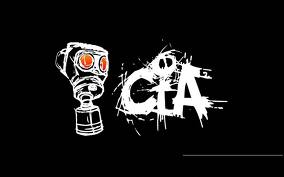I started arguing the idea of me been a C.I.A. agent. Colonel Martinez told me that they found “communist-opposing” pamphlets all over Cuba and that the reason I was circling the island, was because I was instigating some sort of anti-Castro propaganda—from my aircraft.
over Cuba and that the reason I was circling the island, was because I was instigating some sort of anti-Castro propaganda—from my aircraft.
At the end he just laughed and said that he lied because he wanted to see my reaction. What a sick bastard I thought. His behavior was so unbecoming that it contradicted his rank.
Anyhow, a few more days had gone by before we were informed that we would leave the island. Johnny and I were thrilled but a small part of me was nervous. I thought that it might be a sick hoax from the Colonel who loved to indulge in pathetic trickery just to get a kick out of watching us squirm.
We were escorted to the lobby and then to the cashier. He told us that we’d have to pay for the 18 days of room service we rendered. The lady behind the desk started to add vouchers. One after the other she penciled the sums onto a piece of paper, adding the figures with meticulous precision—so it seemed. There were too many I thought, but I didn’t care just as long as we were able to get out safely.
After tallying the room costs, the cashier told me that the 20,000 dollars I had in my account was the exact amount of my stay. I could not believe the rip-off. It was the most audacious non-sense I’ve ever heard. I figured that the repugnant and shameful scheme was the norm in Cuba. The people would bear the burden of having the government do with them as they pleased, and heaven help them if they refuted those burdens by any means.
We rode in a Russian jeep to the airport and on the way there, passed through the main square in the city. People were walking peacefully by, running their errands and tending to their pressing matters. It dawned on me that the Colonel was just trying to impress us by saying that in the city, there were no beggars. I secretly agreed, but it was equally true that the store-fronts were naked, having nothing to display in their windows and consequently nothing to provide its public.
This was heart-breaking for me. My beloved country, one I remembered fondly, one that nurtured my childhood from its fertile bosoms, had succumbed to immeasurable devastation. This was what the Castro regime brought to Cuba.
We finally made it to our aircraft and we found it exactly how we left it. When allowed to inspect it, I realized that the fuel tanks were contaminated with water because of the condensation. Non-the-less, they were still functional.
My desperation to leave was so great that I didn’t argue or complain the issue. Johnny and I immediately entered the aircraft, strapped ourselves in, and readied ourselves for take-off.
We got clearance to fly to Maisi (the eastern part of Guantanamo Province) by V.F.R. (visual fly rule) and then to Haiti, only 45 miles away.
The panoramic view over the green mountainous land and its surrounding breathtaking beaches was so mesmerizing that I became nostalgic and reborn again in that brief moment.
From Haiti the next day, we traveled to Colombia. Our horrific nightmare wasn’t over yet. The journey only got nastier and far more dangerous as soon as we entered the terrain of Barranquilla.



